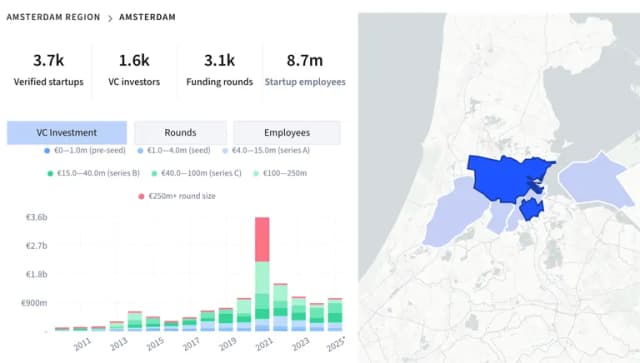

Startup Amsterdam
StartupAmsterdam is an initiative launched by the City of Amsterdam in 2015 to strengthen and promote the city’s startup and innovation ecosystem. It connects and supports founders while creating opportunities across the sector — engaging investors, mentors, coworking spaces, international networks, and other stakeholders to ensure inclusive access for everyone, everywhere in the city.
Everything you need to know
Browse startup & tech events
#FoundersFridays: meet Amsterdam's innovators
Sort by:
Loading...

StartupAmsterdam newsletter
Stay up to date with everything going on in Amsterdam's startup and scale-up scene, including events, news, funding announcements and opportunities for businesses and talent.
Sign up
